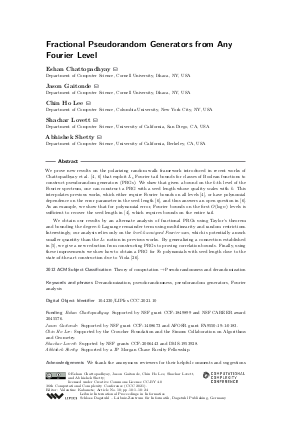LIPIcs.CCC.2021.10.pdf
- Filesize: 0.8 MB
- 24 pages

 Creative Commons Attribution 4.0 International license
Creative Commons Attribution 4.0 International license







Feedback for Dagstuhl Publishing